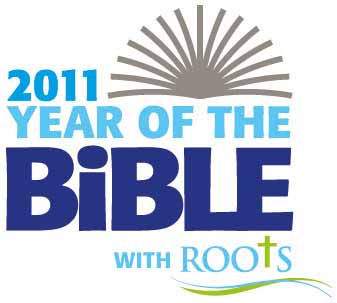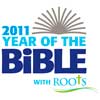Dana Delap reflects on the impact the King James Version has had on themes and language in literature, which burgeoned after its publication
 Great literature impacts us in a variety of ways. The overall story, or metanarrative, explores lasting themes and ideas, influencing storytelling and an understanding of history. But the language used to tell a story shapes hearers in a more subliminal fashion.
Great literature impacts us in a variety of ways. The overall story, or metanarrative, explores lasting themes and ideas, influencing storytelling and an understanding of history. But the language used to tell a story shapes hearers in a more subliminal fashion.
Narrative and language
The overall story in the Bible is God’s own story of grace and the Bible became familiar to people in a single, English version, so the meta-narrative of God’s relationship with humanity was more evidently revealed in other literature. Good novels stir up powerful emotions, within which we recognise redemption, justice, the victory of love over death, faith, and grace. Among many others, we see this at work in contemporary books like The Poisonwood Bible by Barbara Kingsolver, Bel Canto by Ann Patchet and Anita Diamant’s The Red Tent. In Marilynne Robinson’s Gilead, a novel written as a letter from a dying father to his young son, describing the generations of pastors from which he is descended, the relationships between husband and wife, and father and child, are profoundly revealing, and Robinson’s reflections on faith helpfully thought-provoking. The Road by Cormac McCarthy is another outstanding book exploring relationships, and the nature of hope and justice.
Discomfort
Just as the Bible is not universally comfortable reading, neither is a good deal of literature and it is vital that Christians engage with books that see faith through the eyes of others. Terry Pratchett and Neil Gaiman’s Good Omens explores the nature of evil and salvation, and a good understanding of Revelation is required to pick up the myriad references to the Apocalypse. Its witty, sophisticated language makes the book highly engaging, and it is pointed in its criticism of religion. CS Lewis and JRR Tolkein continue an exploration of the victory of good over evil, a strongly biblical theme, even though they have been criticised by some Christians who claim they glamorise evil. The Dark Materials series by Philip Pullman and the Harry Potter books by JK Rowling are criticised in the same way. However, Rowling’s books claim an almost universal readership among under 25-year-olds and, as such, Christians should be engaging with them, and it is possible to see in the Harry Potter books strong biblical themes of love overwhelming wickedness, and a parallel between Harry and the Joseph of Genesis, both lonely children with profound destinies who struggle with weakness to overcome evil on behalf of others.
Familiar phrases
For more than two centuries the KJV was the Bible most universally heard by Christians worshipping in the vernacular English. Thus, other than Shakespeare, no book has given more to spoken and written English and many of its memorable phrases were inherited from the earlier translations of William Tyndale and Myles Coverdale.
Some of phrases have entered the language so completely that their provenance has been forgotten. Paul tells us in 1Timothy 6.10 that ‘the love of money is the root of all evil’. This has become so well known that authors feel confident to take the quote and play with it. Samuel Butler and George Bernard Shaw both suggest that the lack of money leads to evil just as much as having money in the first place, while Graham Greene wrote a short story suggesting that secrets were the root of all evil. The phrase became the title of a cartoon strip Pearls before Swine, in which a rat drops gems of ‘wisdom’ that only the naïve but kindly pig appreciates.
Perhaps most well known among biblical phrases used in literature is from Psalm 23.4 – ‘though I walk through the valley of the shadow of death…’. John Bunyan of course sent his pilgrim through this valley in The Pilgrim’s Progress, and ‘the shadow of death’ or ‘death’s shadow’ has featured in a number of novels, including PD James’ The Black Tower.
Other expressions from the Authorised Version in common usage include ‘the sweat of thy brow’ (Genesis 3.19), ‘the fat of the land’ (Genesis 45.18), ‘by the skin of my teeth’ (Job 19.20), ‘no new thing under the sun’ (Ecclesiastes 1.9), ‘blind leaders of the blind’ (Matthew 15.14), ‘signs of the times’ (Matthew 16.3), ‘a thorn in the flesh’ (2 Corinthians 12.7), ‘labour of love’ (Hebrews 6.10). The list goes on and on.
Whether, as we read literature, we recognise the big theological themes or the detail in the phrases that make up the story, God is within the imaginative creativity that inspires our emotions and causes us to look beyond the words. Winston Churchill suggested that ‘The scholars who produced this masterpiece are mostly unknown and unremembered. But they forged an enduring link, literary and religious, between the English speaking people of the world.’ This has been the year when we have remembered them.
The impact of the Bible on literature is immense, and those who love to read the Bible will always look for God within the pages of all the books they read.
You are welcome to reproduce this article within your church or organisation.
Please ensure that the copyright line 'This resource is taken from www.rootsontheweb.com and is copyright © ROOTS for Churches Ltd 2011.' is included.
You can find out more about the Year of the Bible on the website www.2011trust.org.
 Go to index of all ROOTS
Go to index of all ROOTS
Year of the Bible 2011 material